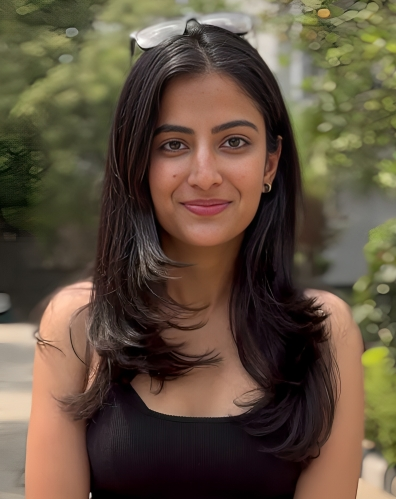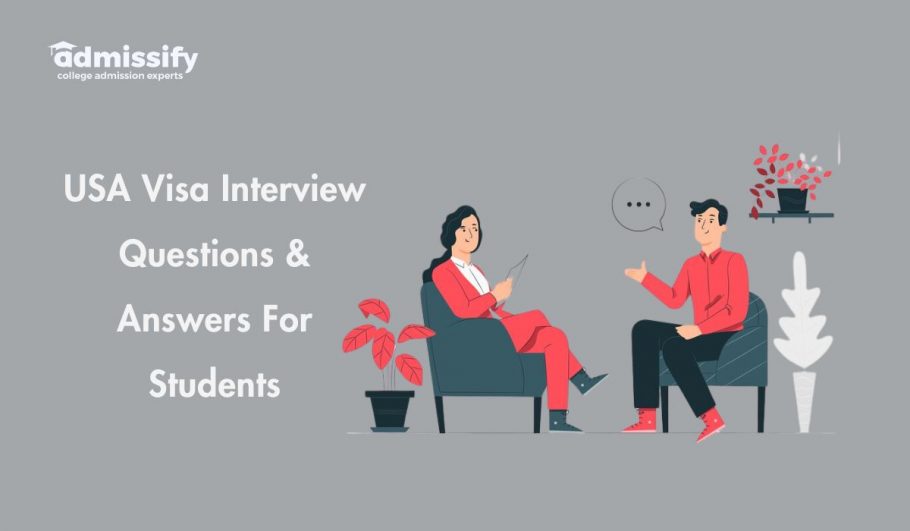Last Updated on December 13, 2024
The United States is a first-world country with the best resources. It is well-known for its cultural diversity, technological innovation, economic power, and political influence on the global stage. There are numerous universities that assist students in achieving their career objectives. Help could come in the form of practical training or providing them with the necessary resources. Now, if you wish to be part of such diversity and great universities, it’s not that difficult if you are an Indian or from any part of the world.
What Are The Types Of Visas For Students?
The visa for students to get into the USA can be divided into three sections. They are:
- F-1 Student Visa: The most common type of student visa is the F-1 visa. Students with this visa are permitted to pursue full-time academic studies and may remain in the United States for the duration of the program. This visa is granted to foreign/international students who intend to study at an accredited academic institution in the United States, such as a university or college.
- J-1 Exchange Visitor Visa: This Visa is intended for students who are participating in exchange programs, whether educational or cultural in nature. The Visa covers students, interns, and others who have been approved for exchange programs.
- M-1 Vocational Student Visa: This visa is intended for students who intend to pursue a non-academic program, such as music appreciation, drawing and painting, computer applications, and so on. This visa allows you to engage in practical training only after completing your academic training.
What are the questions asked in the interviews for students?
The interviewer may ask a series of questions regarding the educational plans that you have, and the financial stability that you hold or plan once you have reached the USA. The interviewer might ask a few questions about your academic background or your personal background, he/she may even test your English language proficiency. They may even ask you about your future plans whether you would be staying in the country or would you be returning home. Here, is a few questions regarding the visa for students that you make expect from the interviewer:
- Which university/college have you been accepted to or plan to attend?
- What will your major or field of study be?
- What are your parents/family members’ occupations?
- Do you have any siblings? What do they do?
- Do you intend to return to your home country after finishing your studies? Why?
- How do you plan to fund your education and living expenses in the U.S.?
- Can you provide proof of sufficient funds to cover your tuition and living costs?
- Have you secured any loans or sponsorships for your education?
- Can you tell me about your academic background and achievements?
- How sure are you of your English language abilities?
- Have you taken any English language tests? What were your scores?
- Can you provide more information about your family, including their occupations and where they live?
- Have you travelled to any other countries before?
- How can you ensure that you will return to your home country after your studies?
US Visa Interview Tips for Students
Here are some of the tips that a student can use for a visa question and answer round:
- Be Honest and Clear: Always provide truthful and up-to-date information. Clear, concise responses are essential for communicating your intentions and plans.
- Practice Beforehand: Practise your responses to common questions. To gain confidence in your responses, practice with a friend or family member.
- Stay Calm and Confident: Maintain a confident and calm demeanor. Speak clearly and don’t rush through your responses.
- Listen Carefully: Before responding, carefully consider the interviewer’s questions. If you have any doubts about a question, don’t be afraid to ask for clarification.
- Stay Relevant: Concentrate on the question at hand and provide pertinent information. Avoid deviating from the topic or providing unnecessary information.
- Be Prepared to Explain: If there are any gaps or unusual aspects in your application or background, be prepared to explain them clearly.
- Show Enthusiasm for Studies: Demonstrate genuine enthusiasm for the program and institution you’ve chosen. Explain why you are enthusiastic about studying.
- Practice Language Proficiency: If English is not your first language, practice it to ensure you can communicate effectively during the interview.
- Stay Positive: Maintain a positive and upbeat demeanour throughout the interview. Avoid making negative remarks or complaints.
- Be Concise: While it is critical to provide sufficient information, avoid lengthy and overly detailed responses. Strive for a good balance of thoroughness and brevity.
- Ask for Clarification: If you have any doubts about a question, don’t be afraid to ask for clarification. It is preferable to seek clarification than to give an incorrect answer.
- Stay Professional: Consider the interview to be a formal and professional discussion. Maintain eye contact and use appropriate language.
- Remain Patient: Don’t be alarmed if the interviewer takes notes or types while you’re speaking. It’s a natural part of the procedure.
- Practice Good Body Language: Maintain an open and optimistic body language. Make eye contact, sit up straight, and smile politely.
These are some of the basic tips and tricks you can follow while answering questions from a visa interviewer.
Read also:
Top 10 Public Universities In USA 2023
How to get a USA Dependent Visa in 2023?
How to get job in USA for Indian in 2023: A Helpful Guide for USA Job Seekers
Conclusion
The USA visa interview Q&A is an important step for students who want to study in the US. It is critical to approach the interview with candor, clarity, and assurance. Practice answering common interview questions, staying calm, and paying close attention to the interviewer’s questions. Highlight your ties to your home country, express enthusiasm for your chosen program, and demonstrate your ability to effectively communicate in English.
Discuss your chosen university and field of study when asked about your educational plans. Explain how you intend to fund your education and living expenses to demonstrate financial stability. Be prepared to explain any gaps or unique aspects of your application, and highlight your academic achievements and language proficiency. Your upbeat demeanor and concise, pertinent responses will make a favorable impression.
Remember to keep positive body language, ask for clarification if necessary, and demonstrate your desire to return to your home country after finishing your studies. By following these tips, you can successfully navigate the USA visa interview and increase your chances of obtaining a student visa to the United States.
How does Admissfy help you in all this?
Here at Admissify, we make sure that you get all the help that you can. From helping you with the selection of the University to providing you with accommodation. If you are confused with your decisions, we have the best professional counselors to help you. Over the years, our counsellors have helped numerous students in simplifying their decisions and excelling in their educative life as well as their working life. Let us worry so that you can focus on your studies.
As part of our effort to help you succeed in exams like the GMAT, GRE, IELTS, and TOEFL without jeopardizing your future academic endeavours, we also offer you a variety of coaching programs for these tests. You can even get coached for questions and answers regarding visa interviews for the USA and many other countries, which will help you get into your desired university. You won’t need to worry about anything because Admissify can help you with a variety of loans, including private and personal loans as well as scholarships.
Do not be concerned if your education is completed but you do not have a work visa since we have your back. You can apply for a work visa with us and begin working immediately.
FAQs
What are the different types of student visas for studying in the USA?
There are three main types of student visas for the USA:
- F-1 Student Visa: For full-time academic studies at accredited institutions.
- J-1 Exchange Visitor Visa: For exchange programs, including students, interns, and more.
- M-1 Vocational Student Visa: For non-academic or vocational programs.
What kind of questions can I expect during a USA student visa interview?
The interviewer may ask about your university, major, family, ties to home country, financial stability, English language skills, travel history, and plans after studies.
How important is it to be honest during the visa interview?
Honesty is crucial. Providing accurate and truthful information builds credibility and increases your chances of visa approval.
What should I do to prepare for the visa interview?
Practice your responses, stay calm, and be confident. Review common questions, your academic plans, financial documents, and ties to your home country.
How can I demonstrate my ties to my home country?
You can showcase family connections, community involvement, property ownership, and job prospects in your home country.
What if I don’t have strong English language skills?
If English isn’t your first language, practice language proficiency before the interview. Demonstrate your ability to communicate effectively.
How can I handle questions about financing my education and living expenses?
Be prepared to explain your funding sources, such as scholarships, family support, or loans. Provide proof of sufficient funds to cover costs.
What if there are gaps in my academic or personal history?
Be ready to explain any gaps clearly and honestly. Highlight how you’ve used that time productively.
Can I ask for clarification if I don’t understand a question?
Absolutely. It’s better to seek clarification than to provide an incorrect answer. Politely ask the interviewer to repeat or explain the question.
How can Admissify assist with the visa process and education planning?
Admissify offers professional counseling, university selection, accommodation support, coaching for exams like GMAT, GRE, IELTS, and TOEFL, guidance for visa interviews, assistance with loans and scholarships, and even support for work visas after graduation. Their services help simplify the entire process for students.

Tanishka Goel is a content writer who is extremely passionate about academics and desires to help students around the world make the perfect choice for their careers and has obtained substantial expertise in the realm of content writing by working in various organizations.




